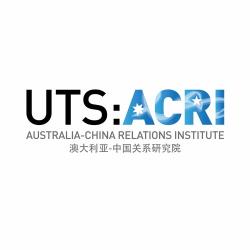Guest: Professor Xie Tao, Dean, School of International Relations and Diplomacy, Beijing Foreign Studies University; Adjunct Professor, Australia-China Relations Institute, University of Technology Sydney
Hosts: Professor James Laurenceson, Director, Australia-China Relations Institute, University of Technology Sydney; Elena Collinson, Senior Project and Research Officer, Australia-China Relations Institute, University of Technology Sydney
In the third episode of the UTS:ACRI Podcast’s new series delivering analysis of COVID-19 and its impacts within the context of the Australia-China relationship, James Laurenceson is joined by Xie Tao to discuss the implications of COVID-19 for the relationship between the United States and the People’s Republic of China (PRC), and subsequent implications for Australia’s geopolitical environment.
In March, claims and insinuations by politicians in both the US and PRC that the other country was responsible for the COVID-19 pandemic led to a diplomatic dispute. However, it is not clear that taking a combative rhetorical approach to relations with the US is the consensus position among PRC political elites. For instance, the PRC Ambassador to the US explicitly disavowed a theory – advanced by a PRC Foreign Ministry spokesperson – insinuating the US was responsible for the initial outbreak of COVID-19.
Nonetheless, several factors – such as the upcoming presidential election in the US and economic headwinds in the PRC – provide incentives for both countries to deploy political rhetoric against each other, using COVID-19 and the trade war as platforms. There are also structural forces likely to push both countries towards intense competition on ideological and political fronts. These mean there is little prospect of a thaw in the US-PRC relationship for the foreseeable future.
Political rhetoric apportioning responsibility for the pandemic to the PRC is reflected to an extent in other countries, including Australia. Professor Xie’s view is that every government has experienced a learning curve during this public health crisis.
Expectations of the US and PRC’s effectiveness in responding to COVID-19 will influence their authority and legitimacy. If for example the PRC is perceived as having outperformed expectations by taking ‘swift’ and ‘bold’ action, its authority and legitimacy in the global order could be bolstered, while if the US is perceived as having underperformed, its standing could be eroded.
Debates about the necessity of reducing reliance on imports from the PRC have also been a common feature of discourse in the wake of COVID-19 in countries around the world. In the PRC, this has been a source of concern about the potential impact on the PRC’s economy. Still, while rhetoric advocating for economic self-sufficiency is politically expedient, implementation may prove economically unsustainable and would be a drastic departure from the existing global market-oriented economic order.
Post-pandemic, the PRC may face stronger negative sentiment in North America, Europe and some parts of Africa. This could present Australia an opportunity to invite cooperation, thereby improving the bilateral relationship. Capitalising on such an opportunity would require cool heads to prevail in both Beijing and Canberra, with consideration given to stabilising and sustaining the relationship in dimensions beyond the economic.
Summary written by Michael Zhou, Project and Research Officer, Australia-China Relations Institute, University of Technology Sydney.
Technical production by Amy Ma, Communications Officer, Australia-China Relations Institute, University of Technology Sydney.
Theme music by Sam J Mitchell.


